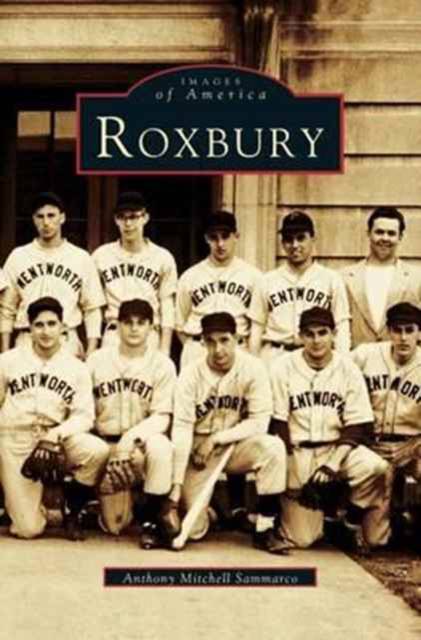
Bedankt voor het vertrouwen het afgelopen jaar! Om jou te bedanken bieden we GRATIS verzending (in België) aan op alles gedurende de hele maand januari.
- Afhalen na 1 uur in een winkel met voorraad
- In januari gratis thuislevering in België
- Ruim aanbod met 7 miljoen producten
Bedankt voor het vertrouwen het afgelopen jaar! Om jou te bedanken bieden we GRATIS verzending (in België) aan op alles gedurende de hele maand januari.
- Afhalen na 1 uur in een winkel met voorraad
- In januari gratis thuislevering in België
- Ruim aanbod met 7 miljoen producten
Zoeken
Omschrijving
Settled in 1630, Roxbury, Massachusetts, became one of the most affluent towns in Colonial America. Throughout the seventeenth and eighteenth centuries, Roxbury was the only point of access by land to the 800-acre peninsula called Boston. Over the course of the eighteenth and nineteenth centuries, Roxbury grew and evolved from a delightful country town to a bustling streetcar suburb. Roxbury became an independent city in 1846, but it was annexed to the City of Boston in 1867. During the twenty-one-year period of its independence, Roxbury began to attract many new residents who worked in its mills, factories, and breweries, as well as others who commuted to Boston for business. After its annexation, Roxbury's growth soared: streets were laid out, housing development escalated, and streetcar service to Boston and Charlestown began. Roxbury--or "Boston Highlands" as it was then known--was no longer home only to the descendants of its original settlers. Immigrants from Ireland, Germany, Poland, and Russia, and later, African-Americans, arrived and contributed to this Boston neighborhood's rich and ever-evolving history.
Specificaties
Betrokkenen
- Auteur(s):
- Uitgeverij:
Inhoud
- Aantal bladzijden:
- 130
- Taal:
- Engels
Eigenschappen
- Productcode (EAN):
- 9781531648688
- Verschijningsdatum:
- 1/05/1997
- Uitvoering:
- Hardcover
- Formaat:
- Genaaid
- Afmetingen:
- 170 mm x 244 mm
- Gewicht:
- 412 g

Alleen bij Standaard Boekhandel
+ 110 punten op je klantenkaart van Standaard Boekhandel
Beoordelingen
We publiceren alleen reviews die voldoen aan de voorwaarden voor reviews. Bekijk onze voorwaarden voor reviews.









